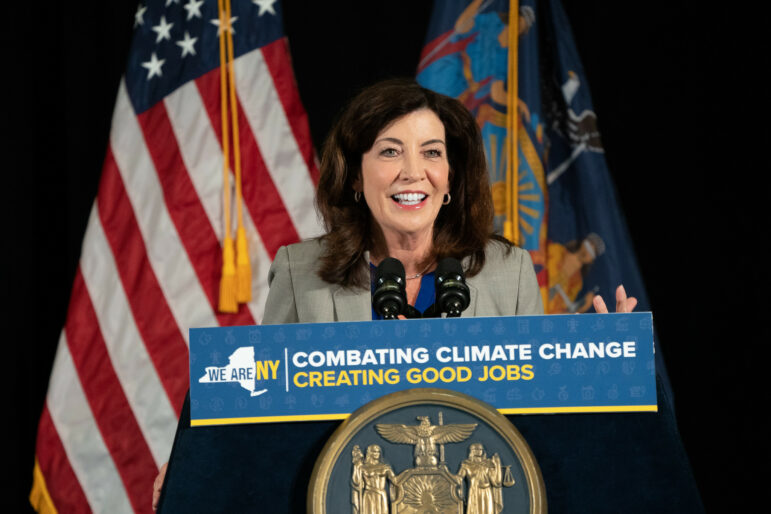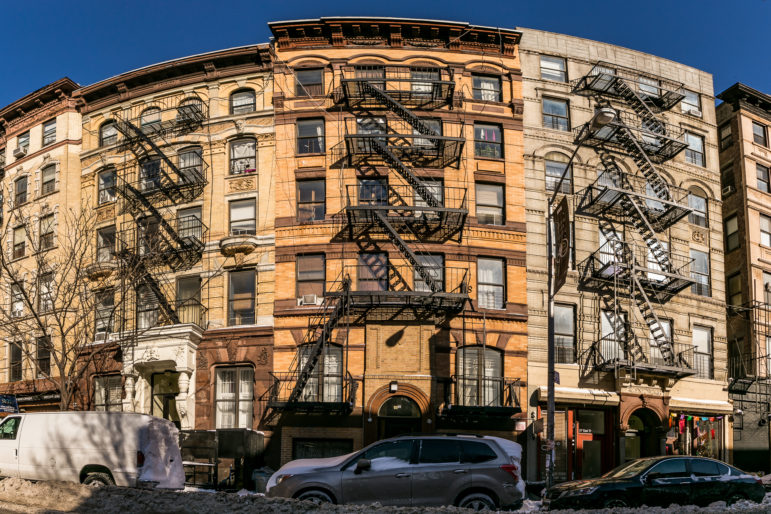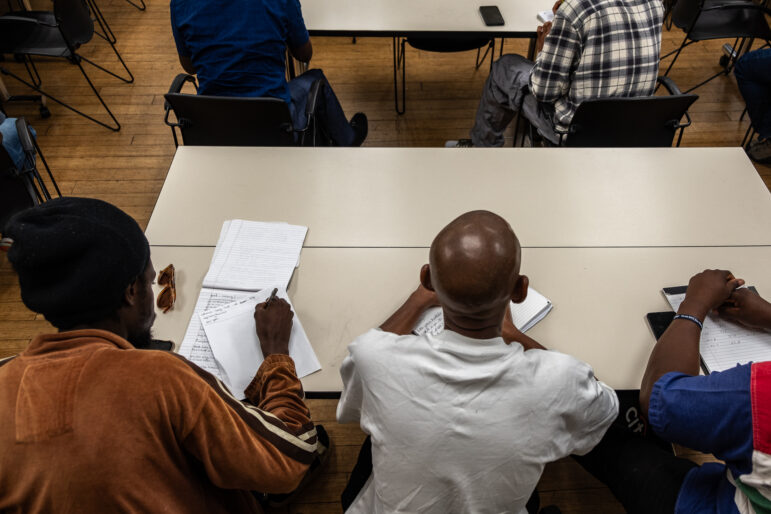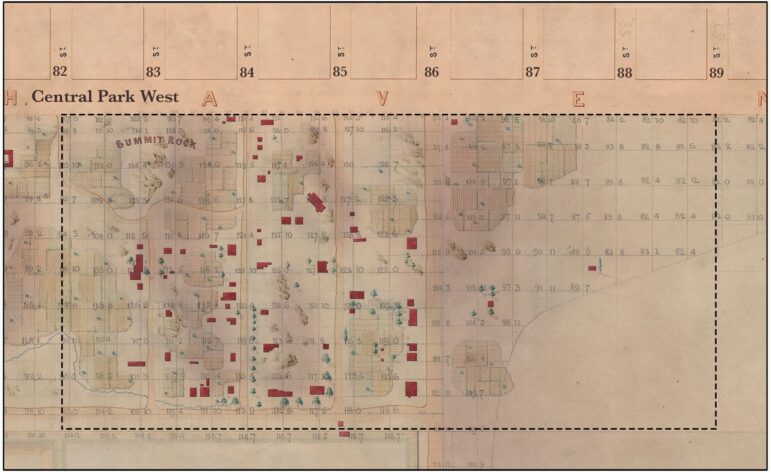“Police, Sanitation, and other government workers have long called Staten Island home, thanks to its affordability when compared to the other boroughs, great schools, and safer neighborhoods. Yet that affordability is now being threatened by a pricing program to fund a system that consistently underinvests in our great borough.”
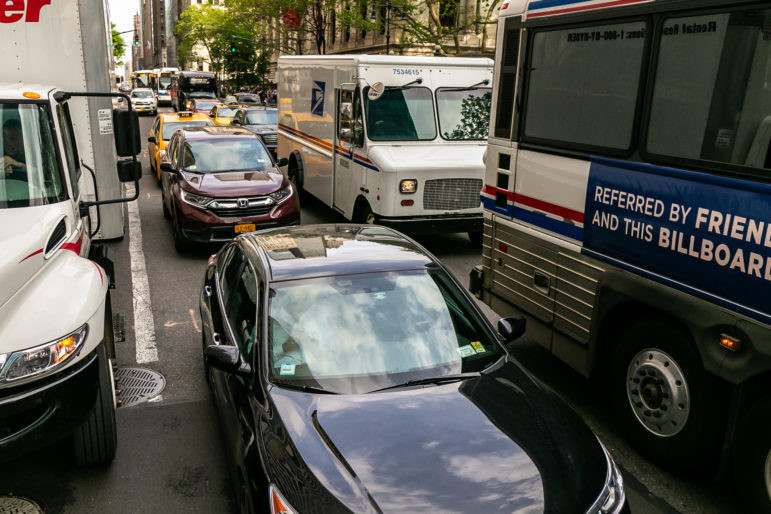
Adi Talwar
Friday evening traffic in Manhattan. CityViews are readers’ opinions, not those of City Limits. Add your voice today!
CityViews are readers’ opinions, not those of City Limits. Add your voice today!
Resilience. It’s a word that’s often used to describe New Yorkers. And that toughness was perhaps never tested as much as during the height of the COVID-19 pandemic, especially when it came to the city’s essential workers.
While many residents had the ability to work from home, nurses, police officers, firefighters, and other government workers didn’t have that luxury and they were forced to put their lives on the line to help others.
With Staten Island Ferry service slowed and the historic overnight closures of the subway system, many of these first responders turned to rideshare. Data from Lyft shows riders who used its platform during that time were almost three times as likely to work an essential job. Drivers, who were also deemed essential, gave hundreds of thousands of rides to these workers who needed a safe way to commute. Those same workers were celebrated and applauded daily for all they did for all of New York City.
And yet, it is those same heroes of the pandemic who will suffer under the misguided tax plan known as congestion pricing. Police, Sanitation, and other government workers have long called Staten Island home, thanks to its affordability when compared to the other boroughs, great schools, and safer neighborhoods. Yet that affordability is now being threatened by a pricing program to fund a system that consistently underinvests in our great borough.
These New Yorkers, who already contribute to the city in meaningful ways, will now have to contribute more and more of their city pay even though their paychecks pale in comparison to the earnings of many office workers in Manhattan. The starting salary for city firefighters is only a little more than $45,000. Those who are starting out in the Sanitation Department take home even less.
These essential workers have already given so much to our city and now the city is sticking its hand out for more. Take rideshare drivers for example: it’s the only industry that currently pays a congestion pricing fee to the MTA and has for years. It’s already adding more than $1 billion to the MTA’s budget.
And while they’ll be tolled just once a day under the MTA’s latest pricing plan, these drivers will still have to shoulder the burden of yet another fee, demonstrating there is no limit to what the MTA will take from New Yorkers who keep New York City moving, and keep the city safe.
And if drivers can no longer afford to drive, that equates to lost jobs for New York City for-hire vehicle drivers, many of whom call Staten Island and Brooklyn home.
New York’s working- and middle-class are this city’s lifeblood. Why should we make it harder and harder for these New Yorkers to live here? These are the same people forced to cover the cost of an unfair property tax system and now some politicians want to keep tacking on fee after fee just for them to move around. It’s just absurd.
Perhaps as the Traffic Mobility Review Board develops recommended rates for the tolling program, the members could find a way to make it a fairer system for all, rather than hurting the essential workers it needs the most. Let’s find another way to ensure these municipal workers aren’t punished for putting their lives on the line every day to keep New York City safe.
Scarcella-Spanton represents New York’s 23rd State Senate District, covering the North and East Shores of Staten Island and Southern Brooklyn. She also serves as chair of the Veterans, Homeland Security and Military Affairs Committee.


